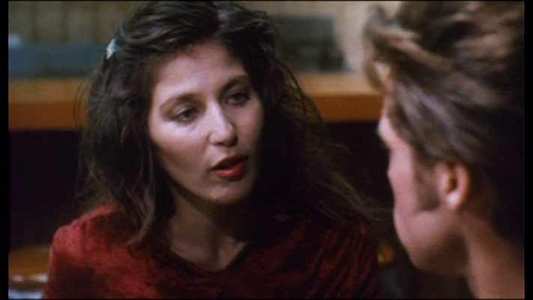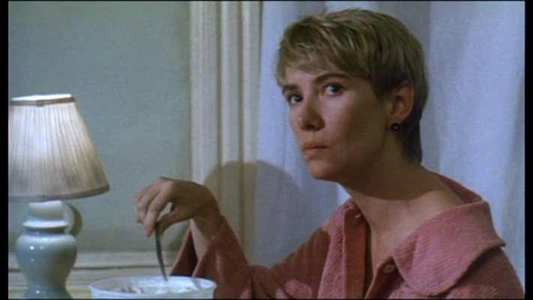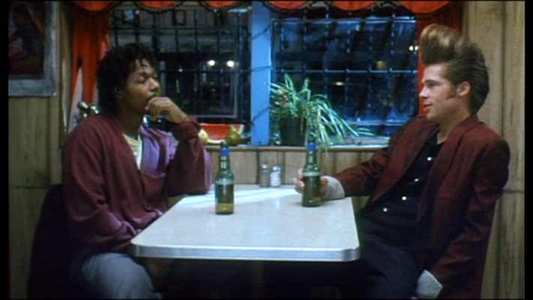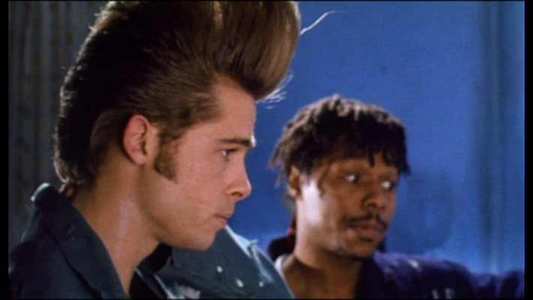Review of Johnny Suede
Introduction
I remember really enjoying this when it came out in the early 90`s. It was hip cinematographer (Jarmusch`s for the record) Tom DiCillo`s directorial debut and it won the Locarno International Film Festival`s Golden Leopard Award, though it failed to get a proper theatrical outing.
At the time, Brad Pitt was the new kid on the block and there was something really hip about this Lynch-wannabe art-house style picture. In fact, I liked it so much I bought the video and it was much watched and appreciated at after-pub gatherings. Finally someone borrowed it and never gave it back. So it`s been over a decade since I watched this and I felt pretty excited about this release.
However - things have moved on since then. Brad Pitt is …well, Brad Pitt, and there`s something slightly embarrassing about this faux-Lynch tale. It`s just not the great movie I remember.
Having said that, it certainly does have its moments.
`Johnny Suede` (played brilliantly by Pitt) is a young, out of step musician with an enormous vertical quiff of hair. He dreams of becoming a singing teen idol like Ricky Nelson, despite the fact that everyone else in the movie has moved on to rap, punk and heavy metal.
Set on an almost deserted semi-industrial outskirts of New York, there`s a dark and fantastical air to proceedings here. (Think `Eraserhead` meets `Pulp Fiction`.)
Whilst making his way back from a bar to his seedy apartment, Johnny witnesses what he believes to be a rape and makes his way to a phone box to call the police. As he starts to dial, a box falls from nowhere onto the roof of the booth. When he looks inside he finds the box contains a pair of black suede shoes which happen to be in his size.
From here the movie traces a paper-thin stylistic and dark narrative that flickers between reality and dream which involves Johnny Suede desperately trying to pull a band together, as well as having a strange relationship with an angelic poetess, Darlette, who, in turn, has a permanent relationship with a violent and sinister Nosferatu look-alike.
Johnny is short of cash and lives in a depressing and run down apartment, falling behind with his rent and having to pawn his guitar to eat. Despite all this, he spends hours in front of the mirror, getting his hair right and stroking those wonderful suede shoes.
In the meantime, Johnny meets with Freek Storm (played entirely unconvincingly by a skeletal Nick Cave), his musical hero, who feeds him with outdated and poisoned chicken - a clumsy metaphor about drug taking?
Taking work as a house-painter, with best friend and band-comrade Deke (Calvin Levels), Johnny`s surreal existence is enhanced with a chance meeting with Yvonne (Catherine Keener) when he spots a dwarf in a cowboy outfit peeking up her skirt on an escalator. Yvonne is world-wise and becomes a kind of mother figure to the naïve Johnny, teaching him the ways of the world.
Even this perfect relationship is ruined though when Pitt follows a girl home whose legs have mesmerised him and sleeps with her. From here on in the plot descends to complete Lynchian surrealism where it`s difficult to tell fact from dream-like fiction.
Tom DiCillo spent more than five years getting this labour of love off the ground, begging and stealing finance, and basing the movie on his own successful one-man show of the same name. Much of it`s content is biographical, which probably means that this is infinitely more satisfying to him than to anyone else.

Video
This is a very nice copy - though it`s a dark picture because it always was. According to the audio commentary the first cinematographer was fired (due to on-set peculiarities best explained by DiCillo) and was replaced by another. There were also nightmarish continuity problems when the building used for Johnny`s apartment was declared dangerous during filming and they had to quickly find another. But none of this shows …

Audio
For a low budget picture audio is strikingly good. Dialogue (mostly half-mumbled) is clearly recorded; levels are good and the music (including some great Link Wray tracks) generally first class.

Features
There`s a really interesting Director`s commentary from Tom DiCillo which is very informative - though frustratingly often loses it`s synchronisation with what`s happening on screen. Di Cillo certainly had a rough ride making the film, though reflects upon it with startling honesty and frankness. I`m ashamed to say that, on reflection, I probably enjoyed this more than the movie itself.
There`s also a photo-gallery which, astonishingly, features more shots of DiCillo than any of the actors. Very odd.

Conclusion
This surreal black comedy, featuring a young and virtually unknown Brad Pitt in the title role, was a little disappointing on this revisit for me. I remember thoroughly enjoying it on its release in the early nineties and particularly Pitt`s mesmerising child-like performance in the key role.
On reflection, it feels like a poor-man`s Lynch (freely admitted by Director DiCillo on the audio commentary), just trying a little bit too hard for comfort to be darkly weird and deep.
There are some great comedic moments amongst the nightmarish gloom, as well as some lovely shots and inspiring music. But these are not enough to pull the movie out of the second division.
On a final note, just as the casting of Pitt was truly inspired, the casting of Nick Cave as pop idol Freek Storm was, in my view, horribly misjudged, perhaps the consequence of being a star-struck fan.
Worth a look - but not the `release of the year` that I was hoping it would be.
Your Opinions and Comments
Be the first to post a comment!